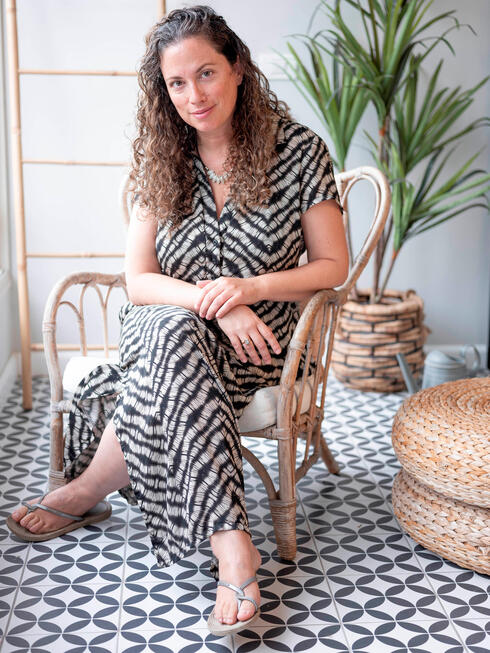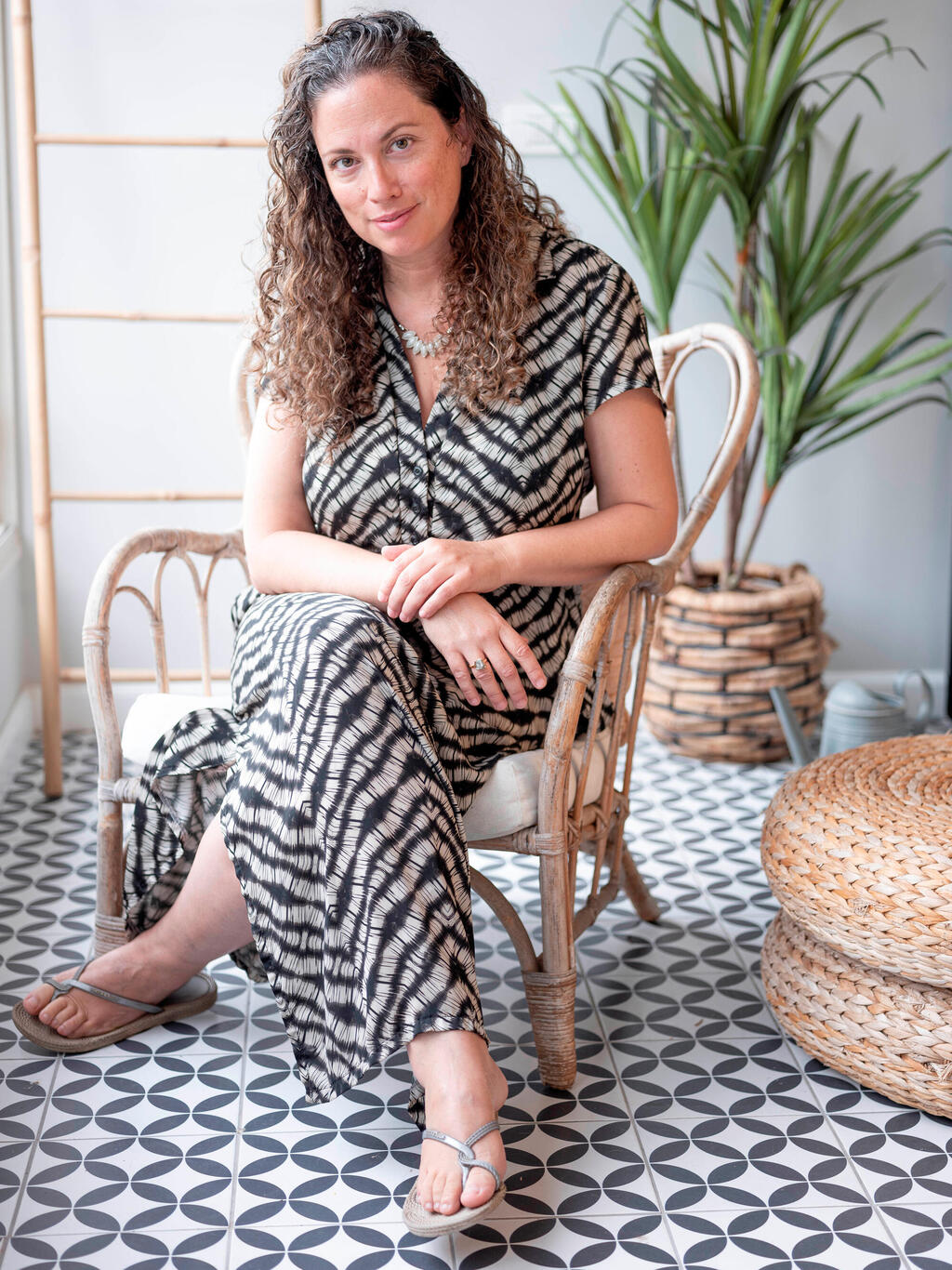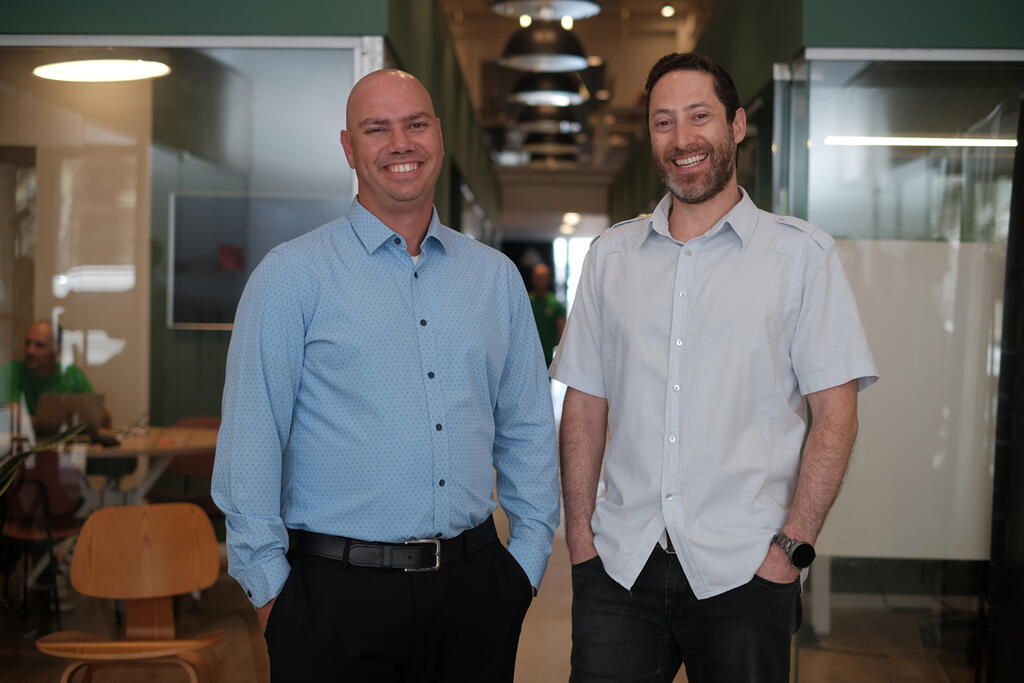
Interview
"The high-tech sector has become malignant"
"VC’s are betting on the megalomaniacal narcissists and that creates a disgusting industry," added serial entrepreneur Revital Hendler, who co-founded BreezoMeter but insists she has no regrets about missing out on its big exit, and explains what entrepreneurs should do so they no longer have to lie to investors to receive funding
On September 21st, a reminder popped up on Revital Hendler's Facebook page: It was a photo from that same date eight years ago, when she revealed her new company, BreezoMeter, and its app that monitors air pollution. Hendler laughed: exactly one day before the reminder, Google bought BreezoMeter for $250 million. She herself was not there to enjoy the big exit as she left the company in 2015, after two years in which she served as chairwoman. A few months ago, she sold all the shares she still had in the company. She exited with quite a bit of money, however, had she waited she could have left with three times the amount.
Hendler doesn't seem to be bothered by the matter. "I had personal considerations to realize at the time," she says in an interview with Calcalist.
You parted with your shares right before the sale.
"I had a secondary offer and I took it. I could have taken half, but I took it all, I made an exit."
Do you feel you missed out?
"I made a decision and I stand by it. I received a respectable amount, I don't sit and cry at night. What good will it do for me to cry about it?"
Why didn't you keep half?
"It was important to me on a psychological level, for personal reasons. I wanted to let go of the past."
"I chose to stay at home with my twins and women didn't like it"
This has been Hendler's (48) life in recent years: personal considerations behind career decisions, even those that are worth a lot of money or can change lives. She knows something about choices - and their prices. With a long series of entrepreneurships behind her, Hendler is one of the most fascinating examples in Israel of combining the personal and professional, between having a thriving high-tech career and a rich private life, between being a manager and a mother.
At the age of 30, Hendler founded and managed AllJobs (with Herzl Ozer, Gadi Shvadron and Niv Ariel), owned a third of the company and at the age of 33 already sold part of it, and about four years later she left and sold the rest (in total she earned several million dollars). Then she founded the professional social network Workwith.me, BreezoMeter, the accelerator TechForGood and the youth entrepreneurship project GameChangerZ. Yet, she was forever accompanied by the built-in tension between her career and her personal life.
BreezoMeter is probably the most extreme example of Hendler's great balancing act. She founded the company with Ran Korber, Ziv Lautman and Emil Fischer (CEO, VP of Marketing and VP of Technology, respectively), whom she met as a judge in the Technion's start-up competition when they were contestants.
How did you join the company?
"The BreezoMeter folks came and asked me to join as a founder. My twins were 11 months old at the time, so I said: 'OK, but the condition is I can offer one day a week as I have twins and I am breastfeeding. I can't be with you in the trenches, but I will tell you which trench to head into. I can’t come to investor meetings, I don't want them to invest because of me, I want to raise my children, I want a home life. But I will prepare you for investors as best I can.''
Didn't you want a managerial position?
"I chose to stay at home with my twins and breastfeed them for two years. I gave my knowledge in exchange for a percentage in the company, not for a position. I knew that this meant that with every new investor that came in, my share would be diluted and that I had no status. It could seem as if I was used and thrown out, and that wouldn't have happened if I had a role in the company."
Is that how you feel? That they used you and threw you out?
"At first, when they asked me to leave the company, I was very hurt. It was completely out of context. I understood the request that I no longer be chairman so that the investor (Avi Eyal) would be appointed, but it was difficult for me to completely leave the company. I am also a founder, and without each of the founders there would be no company. However, they have since apologized, and I have already forgiven them. I understand their desire to succeed on their own - when your child goes to the army he does not want his mother to tell him not to forget his socks, he has to do it alone, and if he forgets he will pay the price for the mistake himself. What I didn't understand was my disappearance from the story from a media point of view. If I am one of the founders, where did I disappear to? But that too is over. It's a clean sheet.”
It was probably hard because you heard about the sale from the media, not from them.
"We're in touch, but not often. I talk to Ran once every few months but I'm not involved in the company. I'm more in touch with Ziv, but he's no longer in the company, and Ran is busy embedding the technology into Google - it will be a lot of work."
Looking back, knowing how things turned out, do you regret the choice to settle for a partial place in the company?
"It was a conscious decision, and I have never regretted it. After 15 years of trying to conceive and eight years of fertility treatments, I was not ready to pay the price of not being a mother to my twins once they were born."
That is not an obvious decision in the high-tech industry.
"The women I spoke to thought I was making a mistake, they didn't like my choice, as if it was sending them ‘back to the kitchen’. However, the difficult years of my career happened before my children. I no longer have to worry about prestige or money, I am privileged and I choose to use it."
"I made three exits, I have three children, I don't need any more"
When the twins, Yonatan and Tahel, were 6 years old, Hendler separated from their father Ron Belson (with whom she founded Workwith.me, along with two others). Then she entered a new relationship, and surprisingly had her first natural pregnancy when she was almost 46 years old, and found herself once again forced to choose.
"I wanted to turn ‘GameChanger’ - an entrepreneurship game app for children and youth, in cooperation with the Ministry of Education - into a startup, but that meant my new relationship and my parenting wouldn’t be as good."
What did you do?
"The project operates in a bootstrap format. It is my right to choose this direction. In relation to my real babies, including my 9-year-olds who are going through a difficult time after our separation and acclimatization in a new school - I feel that I am doing a fucking great job, and I am enjoying every moment. I am giving my all just like I did in business."
What is more difficult?
"Your best moments and your worst moments happen during parenting. There are moments when the little one screams, or moments with children when you ask yourself ‘how do I get out of this crazy state’. There are situations like that in a startup as well - it's not just a cool adventure, it's amazing moments and it's also a fucking nightmare."
"When I said goodbye to BreezoMeter, I realized that it was an exercise in motherhood. The child needs to leave the nest"
"My former partner did not believe in this startup and reminded me of it every morning," she says. "Many other people also told me that I was romanticizing reality, that I was being naive, that I thought that startups were born to save the world. My investor friends said: if you were confident in your ability to make money in real startups, you wouldn't go into the social sector. And I said, 'No way. It should be a technological startup that Google can buy, perhaps Apple. From this point of view, it's a huge pleasure that the exit happened."
BreezoMeter did start almost naively. Ran Korber wanted to buy an apartment in Haifa, and since his wife has asthma, the parameter of air pollution in the various areas of the city became significant. But Korber had trouble finding information at this level of segmentation. Thus, a company was born that provides information on air pollution by location, and in real time, currently operating in more than 100 countries with hundreds of millions of users per day. Its data, which comes from a variety of public and private sources, is integrated into both Apple's and Yahoo's weather apps, and Dyson uses BreezoMeter data to recommend to its customers when to turn on air purifiers. The largest investors in the company are Entrée Capital (Avi Eyal) and Fortissimo, and it also received a research grant from Horizon 2020, the European Union’s largest research and innovation program.
Korber is an environmental engineer, Lautman and Fischer are environmental and computer engineers. None of them had experience in entrepreneurship, so the meeting with Hendler in that competition at the Technion and her joining the company were key points in the development of BreezoMeter.
You defined your role as "behind the scenes" but in the end you found yourself in the front of the house.
"We hired a public relations firm that issued communiques, but no one wanted to write about us. Every day, journalists receive communiques about yet another piece of nonsense, and we were paying month after month, and we didn’t stand out. In the end, Ran came and said to me: 'Revital, I want you to be in front'".
Did it help?
"As soon as it was ‘Revital Hendler's new startup' doors opened. However, it put the team in a justified predicament: they worked hard and in the end in the press it became ‘Revital Hendler's startup'."
Hendler entered the high-tech world in 2004, when she returned from studying her MBA in New York and a trip to Mexico. She searched for a job and discovered that there was no site that gathered all the necessary job postings. That is how AllJobs was born, to this day it is the leading website in Israel in its field. It has been so for almost 20 years, but in recent years its declared emphasis is social. And when she looks at the field of social technology, she can't help but see missed opportunities.
"For example, RiLBiTE is an artificial meat startup that is healthier than Beyond Meat. They have an excellent product, but they don't know how to market themselves as the 'new meat', they do not have the 'Adam Neumann flavor', and that bothers me."
The market today is more open to social investments. If BreezoMeter had started today would it have been easier for you?
"Today everyone wants a little greenwash in their portfolio, but I don't know about BreezoMeter. It wasn't just bought by Google, it's the largest air pollution analysis company in the world. It's just that to get there we needed money. Money is the fuel, without it, the car won't drive. One of the biggest problems is explaining to social entrepreneurs that there is no dichotomy - it's not either you earn money and then you're a prostitute, or you're social and then you have to be poor."
And yet isn’t some of the money greenwash?
"I always choose the more innocent interpretation, not because I'm stupid and don't see things, but because it's more pleasant for me. Are L'Oreal doing greenwash or have they just found another way to extract money from customers? Let's give them the credit that it's real when they say 'here is our next innovation.' We live in a society saturated with innovation, maybe it’s even too innovative. As a consumer and also as someone who comes from the startup world, sometimes I feel like throwing up. There are many things that should not be done."
For example?
"It's not for nothing that we experience issues like WeWork. When a narcissist enters the room, you're a little too embarrassed to say, 'The king is naked.' In your heart, you say: 'It doesn't feel right, but I'll go with his enthusiasm because everyone else does too.' So I don't want another VC in my life."
What's the problem with VC’s?
"Venture capital funds go after entrepreneurs with glam because they believe it will lead them to the next unicorn, and sometimes you have to be a megalomaniac and a narcissist to get there. They basically say: 'We'll bet on the megalomaniacal narcissists, and one of them will hit.' That's the approach, and it produces a disgusting industry. One that is on steroids and pours money into people who are charlatans."
Liars?
"As an entrepreneur, you have to lie to get money - if you don't exaggerate you won't make it. They want the exaggeration, they ask for the lie. Venture capital funds, and investors in general, want you to say you'll reach the stars and believe in yourself, even though they see you're fucking delusional. You are deluding yourself and it is working for you? Take our money."
We are now seeing valuations shrink quite a bit in many companies, with unicorns returning to their true proportions.
“I’m delighted, because this was cancerous as a culture.”
Are you saying that the current high-tech culture is malignant?
“When growth isn’t healthy it is malignant. You raise funds, promise investors inflated figures, receive the money and then need to reach those inflated figures. You pour money on advertising to increase the value rather than doing so by developing the product. In many cases the product gets lost, and is even neglected, because as soon as you have to lie to investors and promise inflated numbers to receive funding you need to continue and fuel this cancer with marketing shticks.
“Healthy growth is opening another branch, receiving feedback on the product, integrating it and then opening another branch. It is growing step by step. Being proud that your startup grew by 150% in a year is very sick. I’m not interested in being part of a sick industry.”
What should young entrepreneurs do in this reality?
“They need to remember that everything that is being done in the mainstream isn’t really necessary because someone else has already done it. How many cybersecurity companies do we really need?”
First published: 16:15, 16.10.22















